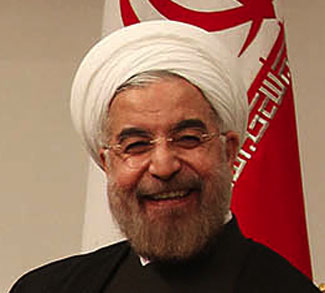Last month, Facebook publicly announced that it’s preparing to launch its own cryptocurrency, called Libra, in 2020. The initiative’s official website claims it intends to “reinvent money,” “transform the global economy,” and “empower billions of people.” Not surprisingly, these ambitious plans have captivated the attention of strategic circles all over the world.
Given Facebook’s size, the cryptocurrency could be a game-changer.
In order to keep things in perspective, it is important to highlight that the currency would operate through platforms like Facebook (which has more than two billion accounts) and WhatsApp (said to be the world’s largest texting app) using a digital wallet called “Calibra.” Moreover, the project’s partners include heavyweight business conglomerates like Uber, Mastercard, PayPal, Spotify, eBay, along with some investment funds and even non-profits and academic institutions.
Interestingly, the value of Libra will be determined by a basket of currencies – the US dollar, the euro, the pound sterling, and the Japanese yen – bank deposits, and US Treasury securities. In other words, rather than being a stateless currency, it would operate as a multilateral derivative of several national currencies, all of which are issued by Western powers and one of their key geopolitical allies. Furthermore, the currency’s operational and policy headquarters will be located in Geneva, Switzerland, a spot chosen because of the legendary Swiss tradition of neutrality, its prestigious financial know-how, and its openness to technological innovation.
That makes it remarkably different from already existing cryptocurrencies. For instance, even though Bitcoin has gained some popularity as a medium of exchange in some very specific sectors – including the illicit markets that flourish in the deep corners of the Darknet – it behaves as a speculative asset due to its wildly volatile value. Hence, it cannot properly perform as either unit of account or store of value – roles that money has to fulfil in order to be regarded as such.
Bitcoin’s performance has been compared to that of the historical phenomenon known as Tulip mania, a speculative frenzy that took place in the context of the Dutch Golden Age. Initially, the arrival of tulip bulbs to Europe as luxurious novelty items triggered a craze that made the commodity’s price reach extraordinarily high proportions – well beyond reasonable levels of intrinsic value – in financial markets, due to expectations of profits that were increasingly out-of-touch with reality. Eventually, the artificial bubble drastically imploded.
Another case worth analyzing is the Petro, a cryptocurrency launched by the Venezuelan government and whose value was to be allegedly anchored to assets like oil, gold, and diamonds. Although it was said to be backed – at least nominally – by a national state, Venezuela’s constant political turmoil, disastrous economic mismanagement, and widespread financial chaos are structural factors that undermine reliability and functionality. Under such conditions, the Petro can hardly be taken seriously. Thus, it has not taken off in any meaningful way.
Therefore, unlike other cryptocurrencies Libra can attain the critical mass that is needed in order to become highly competitive so its potential can be accurately described as disruptive. In fact, a group of US congressmen – all of them members of the Democratic Party – wrote a letter addressed to Facebook’s top decision-makers, asking them to freeze the project because it might eventually spark unforeseen consequences in terms of national security, monetary policy, and privacy. Tellingly, the letter even mentions the need to protect US national interests related to the dollar’s monetary hegemony and also to American unmatched supremacy in global financial governance.
Those concerns are neither unreasonable nor unjustified. In order to understand what motivates them, several issues need to be examined.
First of all, Mark Zuckerberg, Facebook’s CEO, truly believes in the importance of transcending national borders in order to build a “global community” through overlapping networks of connections enabled by ICT, as reflected in the ideological manifesto he published back in early 2017, shortly after the political rise of several nationalist forces throughout the Western world. Actually, other idealistic thinkers and intrepid businessmen have held similar dreams.
However, according to the dictates of realpolitik, what is ideal and what is possible are two very different things. For instance, as a national state, the US is neither politically nor economically monolithic. Its complex polity encompasses countless different sectors and actors whose interests are often difficult to reconcile. Although Facebook is certainly one of the crown jewels of American big tech firms (along with others like Google, Apple, Amazon, Twitter or Netflix), that fact does not necessarily means the national interests of the United States are always completely aligned with those of individual companies.
On the other hand, it is still unclear if Wall Street – a key component of US national power in the field of finance and closely related to the country’s senior political elite – will enthusiastically welcome the arrival of a challenger that could substantially diminish their market shares and profit margins both at home and abroad. In the best-case scenario, a complex negotiation process would have to occur in order to reach a mutually acceptable compromise.
Another factor worth considering is that a digital currency linked simultaneously to the currencies of Western powers makes sense from an economic viewpoint. Their GDPs are robust and their developed financial circuits are both dynamic and reliable. Nevertheless, now that transatlantic relations are being reshuffled – as reflected in NATO’s uncertain prospects and the European Union’s decision to heavily fine Google over antitrust violations – the political foundations of Libra would be rather shaky. This critical issue would then have to be overcome, addressed, or somehow bypassed altogether. Needless to say, it is not an easy challenge under the present circumstances.
Furthermore, the US dollar is not just backed by economic strength. Its hegemonic position as global reserve currency is also tacitly supported by American power projection capabilities, including aircraft carriers, stealth bombers, special operations squads and nuclear weapons, amongst others. Nothing even remotely similar can be said about Libra. In the event that drastic geopolitical tensions threatened to derail Libra in some substantial way, who or what could protect it from these disruptive forces?
Additionally, a digital currency is – by definition – vulnerable to cyber-threats fueled by geopolitical, economic, and sometimes even criminal interests. In fact, computational algorithms can be hacked and reprogrammed into making erratic decisions. Thus, a prospective attacker can weaponize them in order to unleash systemic chaos and instability. Reports about the alleged involvement of Russian intelligence in the implementation of malware that targeted the NASDAQ stock exchange a few years ago must be borne in mind as a cautionary warning that the space where finance and high-tech meet is not immune from geopolitical interference. It would be naïve to think otherwise.
Likewise, it is also pertinent to wonder if the project’s developers have envisaged the implementation of measures meant to secure its institutional structures by minimizing or deterring the risk of infiltration from covert operatives who might ultimately respond with hostile agendas. So far, it is unclear if this will be taken care of somehow, but it is important to highlight that digital firewalls will not suffice to do so.
Last but certainly not least, Libra’s push towards international decentralization might fuel or accelerate a potential bifurcation of the global financial system and thus strengthen the prospects of new possibilities in an increasingly competitive ecosystem.
For instance, the Eurasian powers – notably China, Russia, and Iran – have been trying to challenge the enduring Western control over international finance. China has even established institutional frameworks and structures that operate as parallel counterparts of their Western equivalents. In a foreseeable future, the rise of a digital currency – operated through Asian technological platforms like WeChat – and supported by assets like gold or currencies like the yuan is a hypothetical possibility that deserves to be taken into account.
Although its actual future is still uncertain, Libra raises relevant questions, some of which remain unanswered. However, the project’s multidimensional ramifications illustrate the growing complexity of global phenomena which are being shaped by a myriad of shifting technological, economic, financial, and geopolitical factors.
The views expressed in this article are those of the author alone and do not necessarily reflect Geopoliticalmonitor.com or any institutions with which the author is associated.




